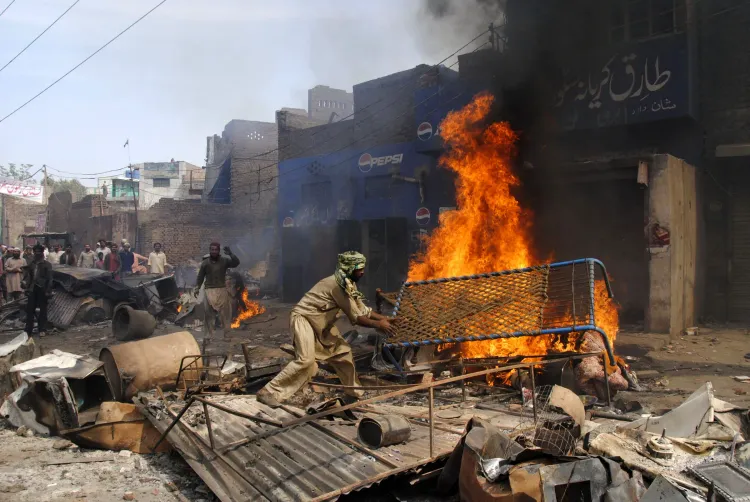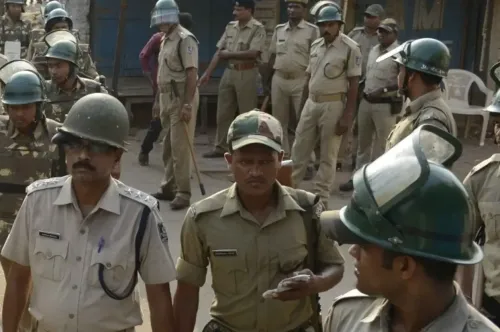Is Pakistan Still Persecuting Religious Minorities with Blasphemy Laws?

Synopsis
Key Takeaways
- Blasphemy laws in Pakistan are often misused against minorities.
- Christians are disproportionately affected by these laws.
- The recent rise in blasphemy cases indicates increasing religious intolerance.
- Mob violence and extrajudicial killings remain serious threats.
- Legal reforms are urgently needed to protect minority rights.
Islamabad, Aug 6 (NationPress) Pakistan continues to persecute religious minorities through its controversial blasphemy laws, especially targeting the Christian community, a recent report reveals. The pattern of religious intolerance and violence against minorities is rooted in the country’s adoption of an Islamic Constitution in 1973 and the incorporation of Sharia law into its Civil Code, which restricts the right to free speech to preserve the glory of Islam.
The notorious blasphemy laws in Pakistan are frequently employed to target minority groups, with Christians facing the brunt of these accusations. Approximately a quarter of all blasphemy allegations are directed at Christians, who constitute merely 1.8 percent of the total population. While the death penalty is associated with these laws, it is rarely enforced. However, those accused of blasphemy often face mob violence or even murder. In June 2024, an elderly man was brutally killed by a mob after being accused of desecrating the Quran, as reported by Brussels-based European Conservative referencing findings from the international advocacy group Open Doors.
The report highlighted the case of a 72-year-old Christian, Anwar Kenneth, who was recently exonerated by Pakistan's Supreme Court after spending 23 years on death row due to blasphemy charges.
In July 2002, he was sentenced to death by a Lahore court after being arrested in 2001 for sending letters considered blasphemous towards Islam.
In June 2025, during a hearing, a three-judge bench of the Supreme Court ruled that a person of unsound mind cannot be held accountable for such a crime.
Defence counsel Rana Abdul Hameed remarked, “It is tragic that an elderly man has endured incarceration for over two decades due to his mental health condition.”
The report also highlighted another violent incident involving the Christian minority in Punjab province. Pervaiz Masih faced accusations of writing blasphemous content, which incited violent riots in the Jaranwala region in August 2023. On April 18 of this year, he was sentenced to death alongside other severe penalties.
The Jaranwala incident, which led to the destruction of at least 20 churches and the forced displacement of hundreds of Christians, exemplifies the violence fueled by blasphemy laws.
A report from the Centre for Social Justice (CSJ) revealed a staggering 344 new blasphemy cases in Pakistan in 2024, showcasing the escalating misuse of these laws. The report noted that at least 10 individuals accused of blasphemy were extrajudicially killed by mobs or individuals in 2024.
“The blatant weaponization of blasphemy laws continues to facilitate persecution, religious intolerance, and widespread human rights violations,” the report concluded.









